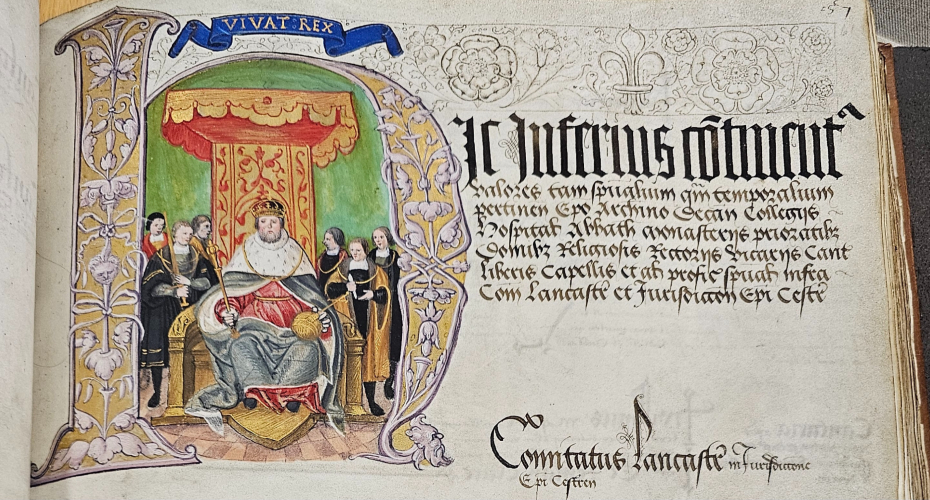A long-lost Tudor Domesday Book commissioned by Henry VIII to count the nation’s wealth is being brought back to life – and its findings will now help shape modern government policy.
The 1535 survey, known as the Valor Ecclesiasticus, recorded the property and riches of England and Wales after the king’s dramatic split from Rome.
Dubbed the “Tudor Domesday Book”, it assessed 8,000 parish churches, 650 monasteries, 22 cathedrals and countless schools, hospitals and poor houses – noting not just land and buildings but the people who lived and worked there.
READ MORE: Rare Tolkien book signed in Elvish sells for double its estimate at £24,000
The detailed account spanned 50 counties and painted a vivid picture of Tudor life, describing everything from orchards and moorlands to markets and coal mines, as reported by What’s The Jam.
Now, nearly 500 years later, the huge survey will be made public online for the first time.
Researchers from the University of Exeter have joined forces with The National Archives, the University of Nottingham, the University of Reading, the National Trust and community groups to digitise the ancient records and map every entry using modern technology.
Professor James Clark of the University of Exeter said: “The Valor Ecclesiasticus is second only to Domesday Book as a three-dimensional snapshot of the realm.
“It reveals the men, women and children who led, laboured for, or benefited from the great institutions of the day.
“The value of this remarkable survey has been locked away for centuries.
“By bringing together this large, interdisciplinary team, we can ensure every detail is mapped for each county, city, town, village and area of countryside.”
The project will transform the original Latin manuscripts into searchable, translated digital records, linked to modern maps using GIS technology.
Dr Charlotte Tupman, who is leading the digital team, said: “The incredible quantity and variety of data in the Valor Ecclesiasticus presents significant and exciting challenges for us.
“We’ll be creating a resource that allows users to explore the data at an unprecedented level of detail.”
The book’s new life isn’t just for history buffs – its insights into wealth, work and welfare will also be shared with current UK government departments developing social and economic policy.
Professor Clark added: “This Tudor Domesday survey was made at a turning point in history, when Henry VIII had led the kingdom out of Europe.
“It would be fitting for these data on the state of his nation to inform fresh approaches to the challenges – economic, environmental and social – of today.”
READ MORE: Nessie boffins join forces with Yeti and Bigfoot hunters to crack global beastly mysteries
